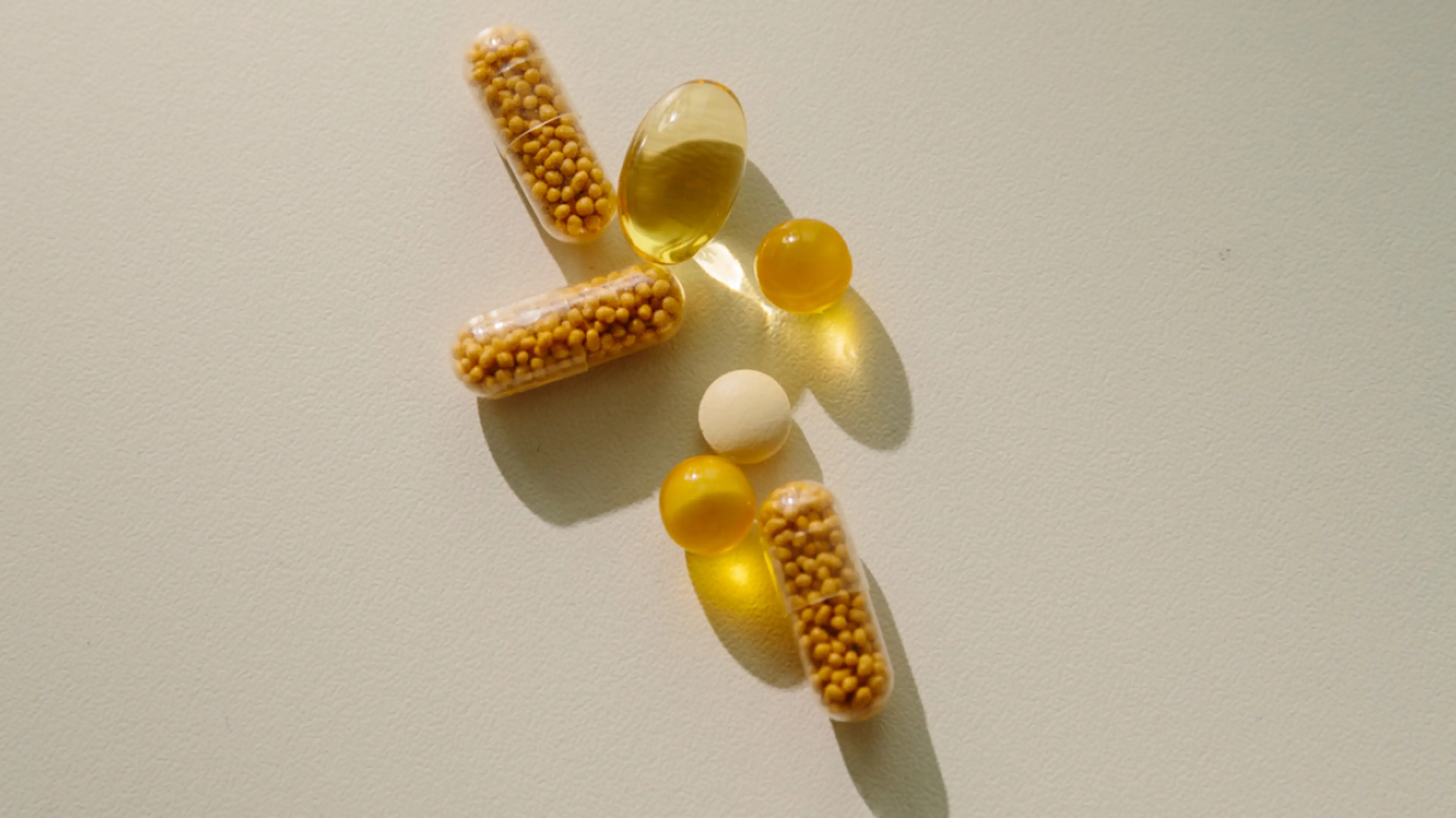TLDR: The importance of taking a prenatal vitamin when you’re pregnant (and even trying to conceive) is common knowledge. What is less well known are the other supplements that are beneficial before, during, and after birth for both you and your baby. This guide will help you decide what to take, when, and why it’s important.
The advice has been the same for years: you should start taking a high-quality, complete prenatal vitamin supplement as soon as you start thinking about conception. Why? To put it simply, when you become pregnant, your growing baby pulls from your nutrient storage to develop everything from its fingers to the heart to the spinal cord. So you want to be prepared when that positive pregnancy test shows up.
When it comes to prenatal vitamins and supplements, there is a timeline of when to take particular supplements to support your body and the development of your baby from preconception through motherhood. But what are those supplements and when do you take them?
To help us understand the ins and outs of a prenatal vitamin protocol, we enlisted the help of ob-gyn Dr. Banafsheh Bayati, who is also the medical co-founder of Perelel. Dr. Bayati has advice for which prenatal vitamins to take when and why. Here are the five nutrients and supplements to add to your pre- and postnatal motherhood routines, and why each is essential for full-spectrum development.
What to Take in Addition to Your Core Prenatal
First things first: if you’re thinking about adding to your family or are already pregnant, start taking a prenatal vitamin right away.
What should you look for in a core prenatal? According to Dr. Bayati, “targeted, bioavailable vitamins are optimal.” That means picking a vitamin that’s the easiest for your body to absorb so that you get the greatest benefit.
In addition to your regular prenatal vitamin, there are some additional nutrients that can be beneficial during pregnancy—as well as before and after.
Before You’re Pregnant: CoQ10
Adding CoQ101 , or Coenzyme Q10, into your preconception journey has the major benefit of starting you off with a solid, healthy foundation. According to Dr. Bayati, “Coenzyme Q10 is an antioxidant that protects our cells from damage and naturally decreases in our body as we age.” She adds, “research has shown that CoQ10 may support egg health and ovarian stimulation.”
So if you’re trying to become pregnant, adding this supplement into your preconception routine can help you feel more confident about your family building efforts. CoQ10 is sometimes found in prenatal vitamins, or you can take it as a standalone supplement.
TTC Through Motherhood: Omega DHA & EPA
This is one supplement you should be taking on top of your core prenatal vitamin during your entire journey.
“Omegas, when taken in the appropriate amount and format, are very good for us because they support your baby’s brain health throughout pregnancy, your inflammatory response, and your central nervous system,” explains Dr. Bayati.
Because it’s beneficial for you and your baby, Omega DHA and EPA is recommended throughout your entire motherhood journey.
Many over-the-counter supplements in this category only have Omega DHA, without the added EPA. Why is it important to have both versions? Dr. Bayati says, “It’s important to make sure you’re taking an omega with both DHA and EPA so that it’s in its most bioavailable format. EPA helps DHA cross the placenta during pregnancy and has really great benefits to support your mood postpartum.”
TTC Through Motherhood: Methylfolate
There are some people who can’t fully absorb folic acid, the synthetic form of folate2 . And folate is important. “Folate is a B9 vitamin that’s very important because it helps with the formation of cells,” says Dr. Bayati. “Your nutritional needs for folate increase in early pregnancy because it helps with your baby’s neural, heart, and face development, especially in the first month or two of pregnancy.”
You don’t necessarily need to know whether your body converts folic acid. What’s most important is that you take a supplement for it, and some supplements have a more bioavailable version of B9, called methylfolate. Dr. Bayati adds, “When you take the active form of folate, methylfolate, you’re just taking the more bioavailable format so you’re a step closer to the form your body will naturally convert and use, which is especially optimal for those who cannot properly convert folic acid.”
Among other benefits, this nutrient also lowers the risk of miscarriage, preterm delivery, and low birth weight. With all these added benefits, it’s a supplement that can offer you a bit more peace of mind and focus on a healthy future with your growing family.
2nd & 3rd Trimesters: Calcium & Magnesium
Calcium and magnesium really shine in the middle-to-late parts of pregnancy. According to Dr. Bayati, “Your calcium needs are highest in your second and third trimesters of pregnancy to support your baby’s skeletal development.” Calcium helps your baby’s little bones to harden, strengthen, and lengthen.
“In addition to calcium, it’s also important to increase your dosage of magnesium, which can help relieve some of those uncomfortable pregnancy symptoms like muscle cramps or an uncomfortable night’s sleep,” Dr. Bayati says.
For your baby growing strong and you feeling comfortable, calcium and magnesium can be the gamechangers that your pregnancy needs. Many prenatal vitamin brands contain both, but it’s not always the case, so check the label.
3rd Trimester: Full-Spectrum Probiotic
Gut health, gut health, gut health. It really is the start of everything, from digestion to immune system performance. Taking a probiotic during the third trimester of pregnancy, you can not only help your own digestive health but also that of your growing baby’s—mothers who take a probiotic during this time are less likely to have a child with eczema3 .
“Your microbiome during pregnancy establishes your baby’s microbiome,” says Dr. Bayati, so taking it in your third trimester can set your fast-growing little one up for tummy success.
So, after reading all that, you may feel a bit overwhelmed. In every stage of motherhood, the right nutrition is important, and vitamins and supplements are an easy way to make sure you’re getting everything you need, so you can focus on other important things during your pregnancy.












